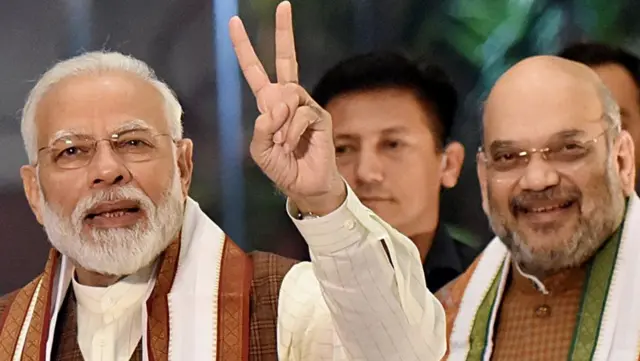June 25, 1975, marks a significant note in the history of modern India, when the then prime minister Indira Gandhi, imposed an emergency period of 21 months that witnessed numerous horrific events in the core memory of the largest democracy in the world. Even today, the ruins of the emergency are brought up in political debates when the nation has been fighting the general elections on a tightrope that allegedly marks the existence of democracy in India.
To not divert away from the topic, we will get back to the news today. For more details on the Emergency check out the piece of information by Wikipedia

We are more interested in sharing with you why is the Emergency talked about recently. Here are the pointers for you to note:
1. Why is Emergency 1975 talked about today?
As mentioned before, June 25 is the date, and in 2024 – it marks the 50th year of that harsh memory for Indians and in that respect, the central government recently announced June 25 as Samvidhan Hatya Diwas (The day when the Indian Constitution was murdered). This move comes in accordance with the current political ambush where the opposition keeps pointing fingers at the government who tends to kill the democracy in the country (allegedly) and since the past decade their path has been leading the nation to an ‘electoral autocracy’ (this term doesn’t suit well in any context, we are just letting you know the other side feels like).
2. Is the government answerable?
Well, to what the opposition claims, the government did not pay much heed to it till the recent election results were out. But as an interpretation of what came out on June 4, 2024, the government is forced to hit back by doing at least something about it. This is primarily because the opposition has been successful in planting this narrative in the minds of the voters during the voting that the BJP wants to win because they want to kill the Constitution. This idea has made its way into the minds of the masses who are direct beneficiaries of the rights bestowed upon them by the constitution. This narrative worked pretty well in important constituencies of India to pull down the vote count of the ruling party and hence it is a serious issue for the BJP that needs to be handled with care.
3. Samvidhan Hatya Diwas – Is it the clapback that we need today?
Emergency certainly made deep wounds to the country’s democratic image and the more we talk about it, we will keep drowning in shame. The fact that forced sterilizations, demolitions, crackdown on unionism etc are grave concerns and the people of that age will certainly recall how it impacted their lives. But, does marking it as Samvidhan Hatya Diwas make a difference in 2024, after 50 years of it being done and 10 years of the government already being witnessed under the heading – National Democratic Alliance? We think this is symbolic and it does make a little difference but only in the long run. In a short one, it is a self-goal.
4. Why is Samvidhan Hatya Diwas less of a powerful tool and more of a misfire?
Not completely a misfire, but we believe, all the effects that it will have will be experienced in a long-term period. After 50 years of continuous name-calling and remembering it as a disaster, it will have a narrative-based impact on the next-to-next generation of voters who will know more about the history but will care more about their future. With the trends going in the liberal direction, it doesn’t seem that people are concerned about the wounds their forefathers had to bear to provide them with this free democracy today and also 50 years from now.
The government aims to do this to draw a parallel or a counter-narrative to the opposition’s dig but the winds have turned. The first-time voter in 2029 or let us say in 2027 (in the Uttar Pradesh assembly) or in 2024 winter (Maharashtra assembly) cares little about what Indira Gandhi did in 1975 and is more interested in what the present government will do for them in the near future. Hence, this is a blocker.
5. Why it will not work tomorrow?
It is a long-war weapon and it will not work tomorrow because the Congress has already been successful in pushing this in the young minds that the BJP is hurting democracy. Political strategists suggest that the winner in information warfare is the one who makes the first move since it is human tendency to believe the first shown side naturally. BJP’s efforts are just a reactive campaign, which could be of significance in real-time only if it made a difference to the youth.
With time, we will see the youth getting sick of the counters showing the mistakes of Indira Gandhi and Jawaharlal Nehru given by the BJP when questioned about their mistakes every time. This is now like a broken record and the voters have stopped being wooed by this (at least the new generation of voters who don’t know/care about the Congress regime anymore)
In our previous article, check it out here, we described how Congress also created a reactive campaign recently by calling the PM – Bael Buddhi.
Our conclusion is, that both the reactions won’t work pretty well but still, the Congress has the upper edge on both terms here, BJP’s shot of calling it Samvidhan Hatya Diwas seems to be another misfire.